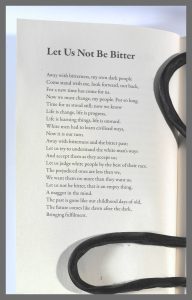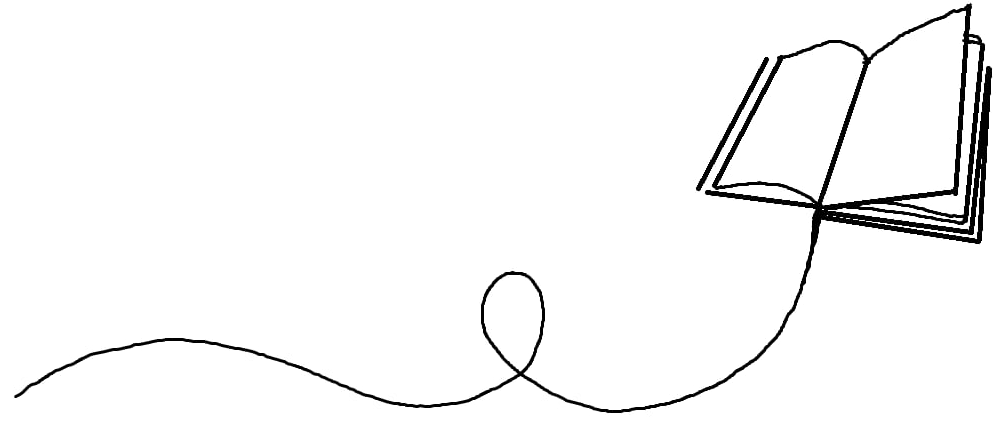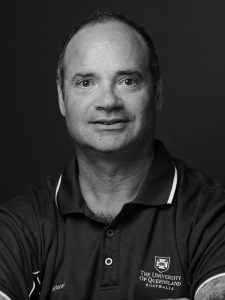22 Growing up on Minjerribah
Ren Perkins
Reading through Oodgeroo Noonuccal’s works, I encountered an exercise book with notes by Oodgeroo (or Aunty Kath to us growing up). What struck me was that it reminded me of the exercise books I used at school. But then, reading through her notes, it struck me about the mundaneness of day-to-day life, living on Minjerribah. And it was amazing. It took me back to growing up and spending time with family on Stradbroke. Visiting Aunties, walking to One Mile, walking to Bumeira (Brown Lake) and being out after dark, being chased by police.
It was the familiar that I could relate to. The relationality of place and Mob. Relationality is premised on a truth that ‘all things exist in relatedness’ and whilst this is a naturally occurring principle of many Indigenous worldviews, it is a principle that is sustained and strengthened through practice. Karen Martin1 goes on to define relatedness itself as ‘sets of conditions, processes and practices’ that occur between entities, including through research practices. I had feelings of longing to return, to be on Country and to be with family. Being on Country includes the plants, the animals, the weather, rocks, fire, soils, waters, air, all of planet Earth. The powerful celestial beings too.2 They are all crucially important, and we are also part of this community. These relationships with each other, human and non-human, continue today. There is much to learn from honouring this connection. The world is full of beautiful places, which fills us with awe and wonder 3, but for me, being on Country is the most peaceful, moving and alive feeling, which in my opinion, makes Minjerribah the most beautiful place on Earth and one where I feel most at home.
So, who was Oodgeroo Noonuccal?
Oodgeroo Noonuccal of the Noonuccal people of North Stradbroke Island near Brisbane was a poet and Aboriginal activist. She was born Kathleen Jean Mary Ruska on 3 November 1920 at Bulimba. Her childhood home was One Mile on North Stradbroke Island on the outskirts of Dunwich. She completed her education at Dunwich State school in 1934 at the age of 13 and left home to work in Brisbane.4 In 1941 she enlisted in the Australian Women’s Army Service and was discharged in 1944. She married Bruce Walker, a childhood friend, on 8 May 1943.4
From 1961 to 1970 she was the Queensland State Secretary of the Federal Council for the Advancement of Aboriginals and Torres Strait Islanders (FCAATSI) as well as an Executive of the Queensland Aboriginal Advancement League and Secretary of the Queensland State Council for the Advancement of Aboriginals and Torres Strait Islanders.5 She was a member of the Aboriginal Arts Board, the Aboriginal Housing Committee, the Australian-American Bicentennial Committee.5 She was also the Chairperson of the Cultural Committee of the Queensland Multicultural Task Force in 1978 and later the Managing Director of the Noonuccal-Nughie Education and Cultural Centre.5
In 1964 she became one of Australia’s first published Aboriginal poets with the release of We are Going: Poems by Kath Walker. Oodgeroo Noonuccal identified Aboriginal people as the inspiration for her work, seeing herself as expressing the voices of her community. She saw poetry as the most personal form of written expression and as a natural extension of Aboriginal oral traditions of storytelling and song-making.5 In an interview with Bruce Dickson, Kath Walker says that “painting has always been her first love [as] it communicates more effectively than the written word”.6
During her lifetime Kath Walker filled several lecturing and artistic positions. In 1996 Queensland University of Technology renamed its Aboriginal and Torres Strait Islander Support Unit the Oodgeroo Unit.7
In protest at the 1988 Australian Bicentenary celebrations, Kath Walker changed her name to Oodgeroo of the Noonuccal people in 1987. In the same year she returned the MBE she was awarded in 1970 to the Governor of Queensland.5

To conclude my reflection of the Fryer Library Indigenous collections, I would like to leave you with one of Oodgeroo Noonuccal’s poems, ‘Let Us Not Be Bitter’, from her book, My People (1970).
Let us judge white people by the best of their race.
The prejudiced ones are less than we,
We want them no more than they want us.
Let us not be bitter, that is an empty thing,
A maggot in the mind.
The past is gone like our childhood days of old,
The future comes like dawn after the dark,
Bringing fulfilment.
(Excerpt from My People 1970, p. 2 © Jacaranda Press. Used with permission.)8
References
- Martin, K. L. (2008). Please Knock Before You Enter: Aboriginal Regulation of Outsiders and the Implications for Researchers. Post Pressed.
- Cavanagh, V. (2020). Friday Essay: This Grandmother Tree Connects Me to Country. I Cried When I Saw Her Burned, The Conversation.
- Ungunmerr, M. R. (Nauiyu, Daly River) & Gordon, P. (2024, October 7) Dadirri – The Deep Inner Spring. Soul Advisor.
- Abbey, S. (2024). Noonuccal, Oodgeroo (1920–1993). Indigenous Australia.
- National Archives of Australia. (2010). Aboriginal poet and activist Oodgeroo Noonuccal (formerly known as Kath Walker).
- Dickson, B. (1981). Oodgeroo Noonuccal: 1920-1993: the legacy of a true national treasure. A previously unpublished interview with Oodgeroo Noonuccal (Kath Walker) [Interview]. University of Queensland.
- Queensland University of Technology. (2024). Oodgeroo Unit. About QUT.
- Oodgeroo Noonuccal. (2021). My People (Fifth edition.). John Wiley.
* * *
Links to the Fryer Library Collection
Oodgeroo Noonuccal Papers, UQFL84, Fryer Library, The University of Queensland.
Oodgeroo Noonuccal (Moondjan). (1964). We are going : poems. Jacaranda Press.
Oodgeroo Noonuccal (Moondjan). (1990). My people (3rd ed.). Jacaranda Press.
Biography

Ren Perkins is a Quandamooka man who also has connections to the Wakka Wakka Nation. He is currently undertaking a PhD at the University of Queensland entitled Learning from the Lived Experiences of Indigenous Teachers who have Remained in the Profession. His positioning as an Aboriginal man who has worked in Indigenous education for over 20 years has contributed to conceptualising his research. His project offers another Aboriginal voice in the literature on Indigenous education.

